Dinesh Elumalai explores the prospects of integrating Artificial Intelligence in India’s medical sector to develop tomorrow’s infrastructure
The use of artificial intelligence (AI) in business and now in healthcare is widespread. The growth of healthcare data suggests that the use of artificial intelligence is expanding.
Early disease diagnosis, the development of new drugs, drug testing, diabetic retinopathy, cancer therapies, cardiovascular disease, and eye care are the main applications of AI. India is expected to invest $11.78 billion in AI by 2025. It is anticipated to have boosted India’s economy by $1 trillion by 2035. The massive increase in investment, especially in AI, is taking place for a variety of reasons.
In comparison to the global average of 150 doctors per 100,000 people, India has only 64 doctors available for every 100,000 people. The impact of technology has been minimal, even in urban areas. The COVID-19 saw a significant increase in online doctor consultations, but the effect has not been as revolutionary as expected.
Integration of AI in healthcare is not an easy dream. It is necessary for the government to implement AI courses and AI-based curriculum in schools and colleges, particularly in medical and health science colleges. The healthcare sector in India, which is predicted to reach $372 billion this year, can receive help from the use of AI-based technologies to close the supply-demand gap.
Artificial Intelligence’s role in Healthcare
Diagnoses and early detection techniques already incorporate AI. The Indian government’s public policy and programme framework, NITI Aayog, has been testing the use of AI in the early detection of diabetes and is currently working on using AI as a screening tool for eye care. The goal is to combine AI-based screening technologies with portable screening tools to hasten eye screening and early diagnosis, particularly in rural and remote areas.
The process of creating new drugs also uses predictive analysis powered by AI. Artificial intelligence has the potential to expedite the hit-to-lead phase of early drug discovery and deliver accurate drug target results.
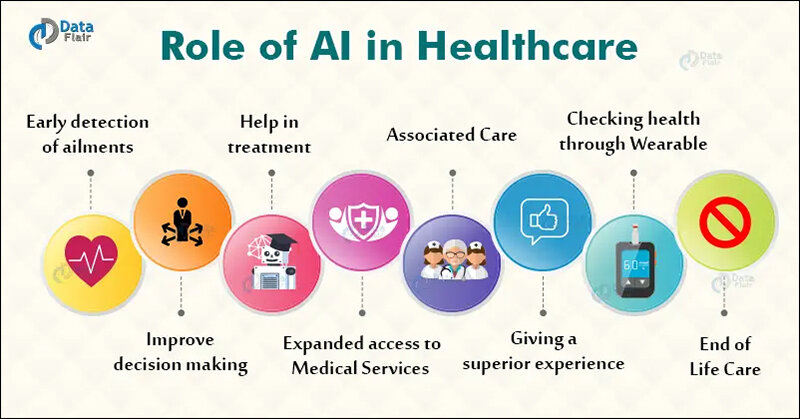
Obstacles to AI Integration in Healthcare
The main pre-requisite for integrating AI in healthcare is public health data, which is also one of the potential risk factors. Tools and technologies based on AI require enormous amounts of patient data. Fragmented or inaccurate data can exacerbate inaccurate decisions, such as inappropriate drug prescriptions or disease detection. Patients must therefore comprehend how their data is used to develop AI models and supply accurate data.
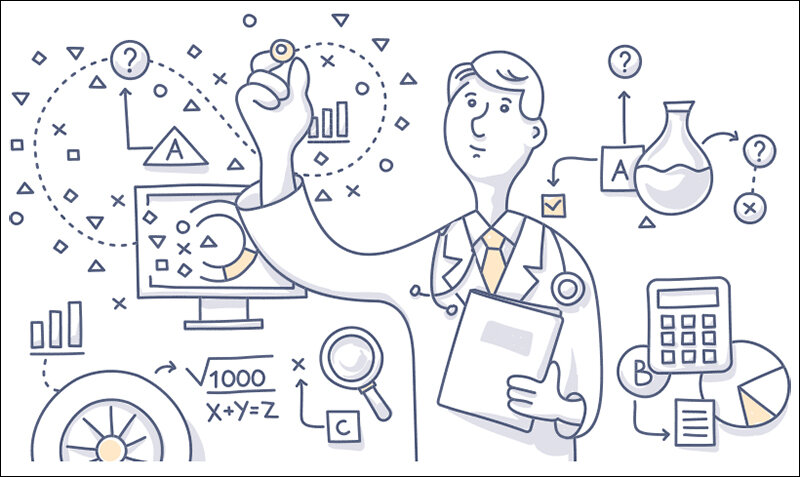
The healthcare sector should be aware that the use of AI in healthcare is only the beginning. An excessive reliance on AI-based tools and elevated levels of automation could compromise doctors’ ability to correctly identify errors at any stage of AI integration.
Instead of being used to automate decision-making, AI should support healthcare in making decisions. Primary healthcare should never be replaced by AI-based tools instead, they should aid in giving remote populations access to modern infrastructure and tools.
What advantages does AI have for healthcare?
Particularly in the field of health, artificial intelligence keeps evolving and reviving. By managing patients and resources and automating a few tasks, AI has increased efficiency in the healthcare industry.
A few advantages are:
- Early detection
- Decreased prices and accelerated pace
- A successful and distinctive surgical assistance service
- Improving mental health and human abilities
This brings up the current state of AI in India’s healthcare sector. We authored this article to discuss a few healthcare start-ups in India using AI. So, without any order, let us begin!
Tricog
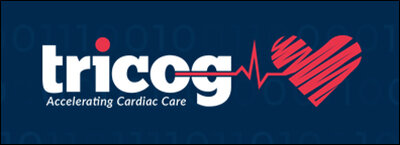
In Bengaluru, Tricog, a company specializing in healthcare analytics, was founded in 2014 by Udayan Dasputa, Chirat Bhograj, Abhinav Gujjar, and Zainul Charbiwala.
With the help of their flagship product, InstaECG, which is cloud-connected, users can quickly interpret and analyze ECG reports. InstaEcho, a cardiac product used to aid doctors in precise echocardiogram diagnosis, is another one of their successful products.
Tricog has over 2,600 employees and has served more than 12 countries worldwide with these two popular products. The prestigious NASSCOM Artificial Intelligence Game Changer Award of 2018 has also been given to the business.”
SigTuple

SigTuple, which has been offering AI-based healthcare diagnostic solutions since 2015, is another name among top AI healthcare start-ups in India. By automating microscopy using innovative AI and robotics, SigTuple democratizes it.
Their deep learning and machine learning platforms, like Manthan, can identify and forecast a person’s likelihood of having a specific disease based on medical diagnostic images. Shonit, an image processing-based solution from SigTuple, analyses peripheral blood smears and offers solutions for a differential blood count. Clinical trials are being conducted to screen for illnesses like malaria and anemia on the Shonit.
Niramai
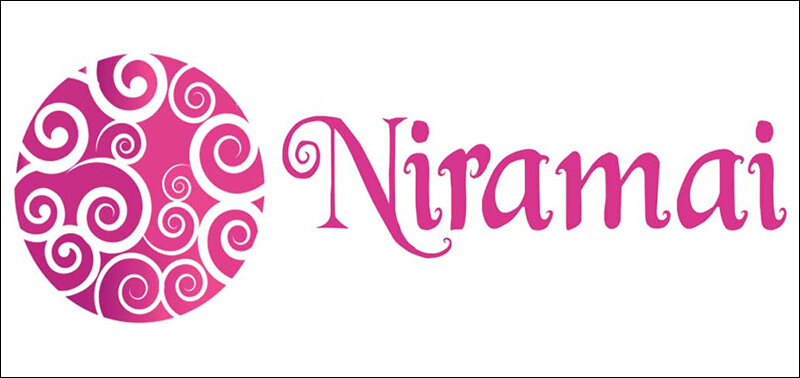
Bengaluru-based One of the first AI healthcare start-ups in India is Niramai Health Analytix. Geetha Manjunath and Nidhi Mathur founded the business in 2016, and it offers Thermalytix, a cutting-edge software-based medical device that uses high-resolution thermal sensing technology powered by artificial intelligence to detect breast cancer in its early stages.
The automated, inexpensive, and portable software-based medical device makes cancer screening possible in clinics all over India. The device’s fundamental technology is based on machine learning algorithms. In rural and semi-urban areas, Niramai’s solution is also being used for routine preventive health examinations and extensive screenings.
HealthifyMe
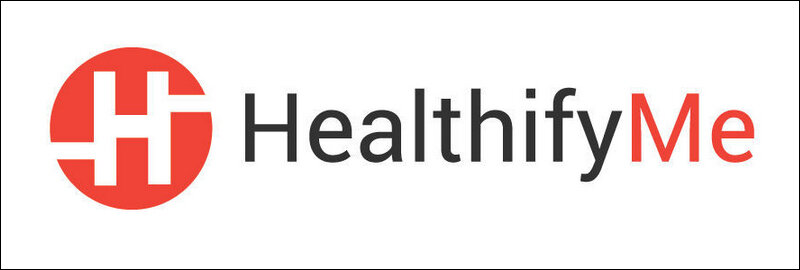
Tushar Vashisht, Sachin Shenoy, and Mathew Cherian founded the Bengaluru-based digital health and wellness business HealthifyMe in 2012 with the goal of bringing digital healthcare to Indians. The business offers an app that responds to users’ questions about fitness, nutrition, and health in 10 different languages using the virtual assistant “Ria,” the world’s first AI nutritionist. Additionally, the app offers dietary suggestions and tracks calorie intake using artificial intelligence.
Through a premium subscription, HealthifyMe provides qualified nutrition and fitness advice to people from all walks of life, including healthcare professionals and regular users. One of the world’s largest databases of Indian food is allegedly available to the company.
PharmEasy
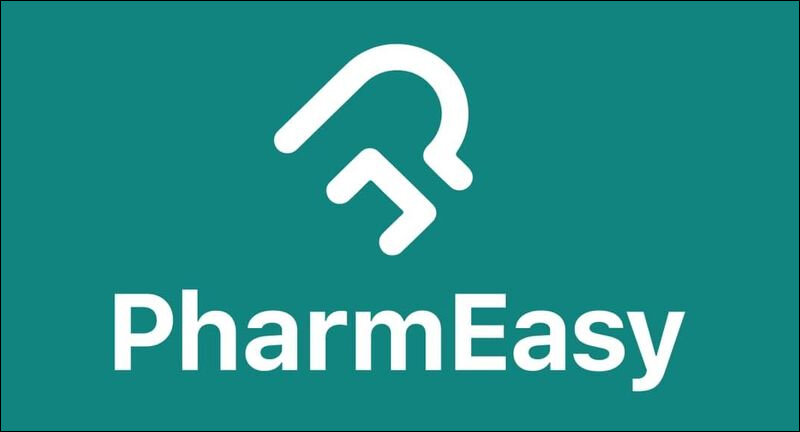
“With the assistance of Orios Venture and Bessemer Venture Partners, Dharmil Sheth was established in 2016. PharmaEasy, a pharma platform with headquarters in Mumbai, is one of the best healthcare startups in India. It’s one of India’s top medical startups. PharmEasy now has more than 150 partner vendors and operates in 7 cities, including Ahmedabad, Jaipur, Pune, Kolkata, Bengaluru, Mumbai, and Delhi.
It started with the goal of providing medicines at cost-effective prices by streamlining the supply chain and logistics, and now serves far more than one lakh families.
Users of the PharmaEasy app can place an order with just 3 clicks, and they can position a reorder with a single tap. By developing scalable technology that will connect many pharmacies across cities, villages, and towns across the country, they aim to create an ecosystem using technology to link patients, pharmacies, doctors, analysis centers, and healthcare service providers and enable them to collaborate with one another.
BlueSemi

One of India’s first AI healthcare startups, BlueSemi was founded in 2017 and focuses on consumer health technology. The Hyderabad-based business offers IoT (Internet of Things) solutions for managing healthcare, such as solutions for temperature measurement and anti-counterfeiting. In order to check for fevers, BlueSemi also provides a wireless temperature scanner.
Wearable technology and autonomous vehicles can benefit from power independence thanks to its energy harvesting device. Unique identification coding, data analytics, integration, tailored access, marketing, and other features are among its additional features. It has applications in medical facilities, wearable technology, retail, autonomous vehicles, smart homes, and other areas.
Qure.ai
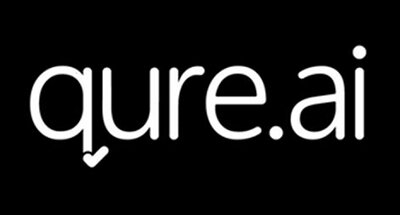
Prashant Warier and Pooja Rao founded the Mumbai-based business Qure.ai in 2016. Healthcare solutions are made available and affordable using AI. Deep learning algorithms are applied to interpret radiology images and scans, such as head CT scans, chest X-rays, chest CT scans, POQUS, etc., in a matter of seconds.
It also provides neighbourhood treatments for tuberculosis, public health, and COVID-19.
HealthKart
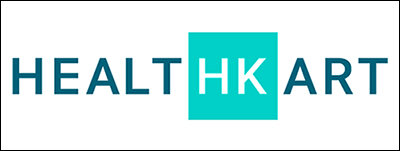
“Healthkart, a Gurgaon-based start-up that specializes in AI healthcare, was established in 2011. It offers a variety of health services and products through its e-health store to assist customers in achieving their fitness objectives.
Through conventional AI, Healthkart also provides on-demand medical and fitness advice. It is one of the biggest healthcare e-commerce platforms in India. Nutritional supplements, diabetes supplies, medical-related equipment, and infant care products are all available from HealthKart. HealthKart provides home delivery of products purchased on the internet.
This leading healthcare platform began as a mobile application and a website. Today, it has evolved into a marketplace that offers a variety of services, including the ability to browse and purchase prescription drugs online.”
HealthPlix

“The electronic medical records solution from HealthPlix has made dealing chronic care much simpler.
Among the top features of this solution are lab management, e-prescription creation, billing, and a dashboard that supplies machine learning and AI-based insights for testing clinical hypotheses, finance marketing, and treatment outcome. They also supply many other services, such as patient record tracking and patient risk management. The company was founded in 2014 in Bengaluru, India.”
Artelus
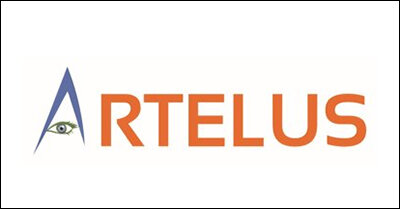
“Bengaluru-based Artelus was founded in 2015 by Pradeep Walia, Rajarajeshwari K, and Vish Durga. The health tech start-up uses deep learning technology to screen for diabetic retinopathy. Images are examined by AI-powered algorithms for diagnosis.
Artelus is currently operational in 502 locations (India, the United States, and Dubai) and has assisted in the screening of over 81,000 patients. The health tech start-up recently developed a contactless diabetic retinopathy screening system powered by AI that can perform an eye examination in less than three minutes.”
DocTalk
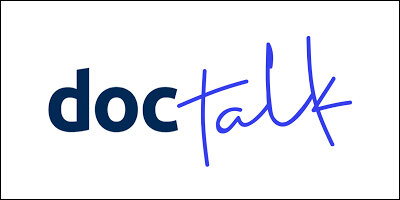
A software programme from the AI healthcare start-up DocTalk, based in Mumbai, allows users to easily share medical reports and prescriptions with doctors while also keeping track of them.
The start-up, which was established in 2016 by Akshat Goenka and Vamsee Chamakura, focuses on an AI-based virtual assistant programme to improve India’s healthcare sector. Additionally, DocTalk gives users a platform where they can consult their doctors via the app to find solutions. The app also makes it simple for users to save all their medical records and photos to the cloud, making it possible for users to access them digitally from any location.
Conclusion
Important investments in workforce, infrastructure, regulatory frameworks, stakeholders, and business models are needed for AI integration in healthcare.
This calls for the inclusion of AI in the academic curricula for students studying medicine and paramedicine. The Indian government will also need to make the necessary investments in the foundational healthcare system.
By incorporating AI into healthcare, India may be able to address the disparity between its growing rural population and the absence of adequate infrastructure. India can quickly achieve its sustainable development goals and take the lead among emerging markets.
In case you missed:
- Preventive Medicine in the Digital Age
- The Symbiosis of Medicine and Machines: Pioneering Technological Transformations in Healthcare
- Navigating the Future of Healthcare: Ethical Considerations, Technological Trends, and Challenges in Integration
- Distinguishing Deep Learning, Machine Learning, and Artificial Intelligence
- Dropshipping – The Technology, Difference Between Retail and Top Dropshippers
- Transforming India’s Organic Food Landscape: A Tech-Infused Revolution
- The Role of AI in Driving Digital Transformation
- The Growth Of Apps For Mindfulness: How AI Can Help With Stress Management
- The Automotive Industry’s Response to AI and E-Vehicles: Traveling Forward
- Unveiling the Depths of Intelligence: A Journey into the World of Deep Learning
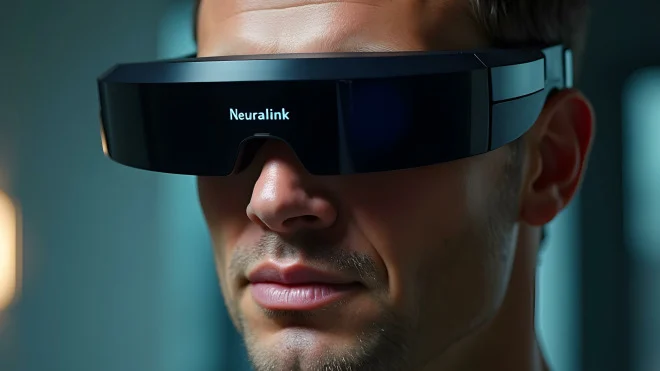


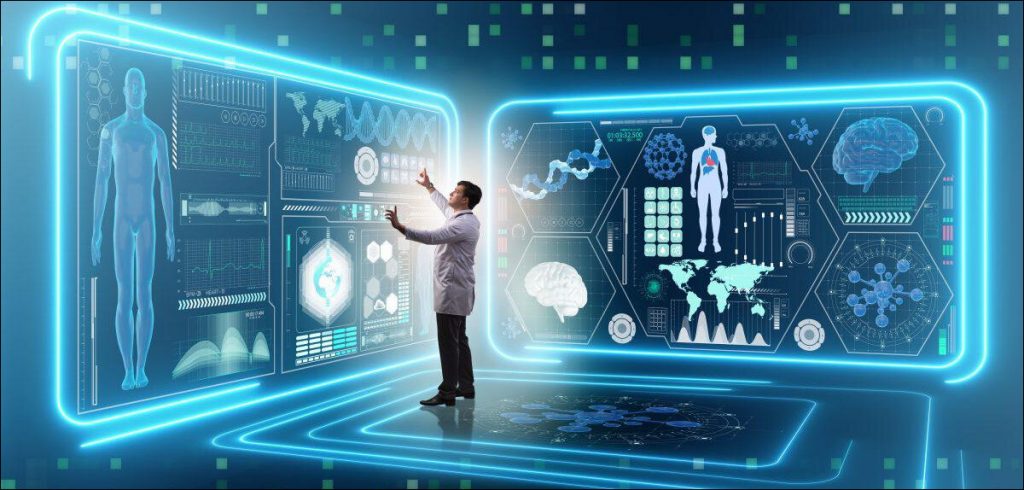
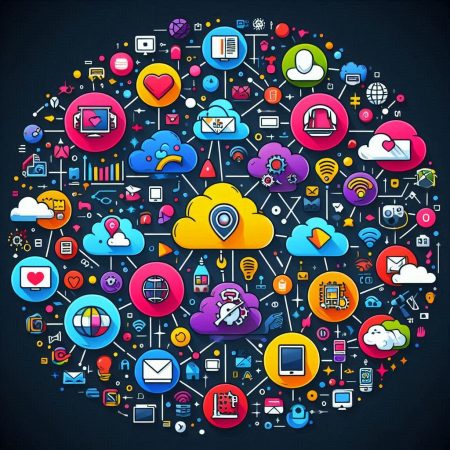

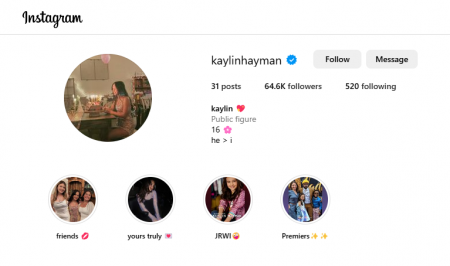
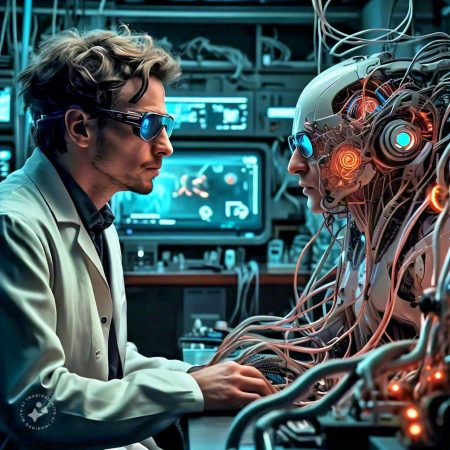

1 Comment
Data science is one of those technologies whose applications are permeating and transforming every industry. Some application sectors include healthcare, IT, media and entertainment, banking and finance, education, and e-commerce. Additionally, data science influences and improves fundamental services like the healthcare sector.
To learn the Technique clearly, explore the popular Data Science Certification Course.